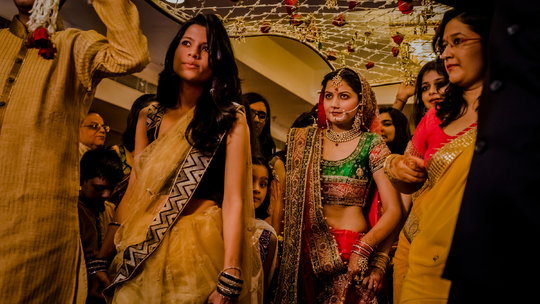For thousands of years, fathers in India have arranged the marriages of their children, and Garima Pant — like an estimated 95 percent of her millennial peers — was intent on following this most Indian of traditions.
Her father found a well-educated man in her caste from a marriage website that features profiles of potential mates and presented his choice to her. And that was when her rebellion began.
“I don’t think so,” responded Ms. Pant, a 27-year-old special education teacher, after seeing a picture of a man with streaks of color in his hair. So her father picked another profile. “Are you kidding?” And another. “Ugh.” And dozens more.
When a profile of a man who intrigued her finally appeared, Ms. Pant broke with tradition yet again, finding the man’s cellphone number and secretly texting him.
Her boldness made the match. By the time the fathers discovered that their families were of the same gotra, or subcaste, generally making marriage taboo, their children had texted and emailed enough that they were hooked. Months later, the couple exchanged vows with their fathers’ grudging blessings. Theirs was one of a growing number of “semi-arranged” marriages in which technology has played matchmaker, helping whittle away at an ancient tradition, but with a particularly Indian twist.

In a society where marriage is largely still a compact between families, most parents, especially fathers, are in charge of the search for a mate, including by scouring the now ubiquitous marriage websites for acceptable candidates. But a growing number, especially in India’s cities, now allow their children veto power. Even siblings have begun weighing in; Ms. Pant’s younger brother became an early booster of the man she would eventually marry after seeing his profile photo with a black Labrador retriever.
Human rights activists have welcomed the evolution as a significant change in the status of women worldwide and are hoping even poor, rural families begin to allow marriages based on choice.
Each year, they note, roughly eight million mostly teenage brides marry men chosen entirely by their parents, with many meeting their grooms for the first time on their wedding day. Refusals can be met with violence and, sometimes, murder. In one case last November, a 21-year-old New Delhi college student was strangled by her parents for marrying against their wishes.
The shift away from fully arranged marriages is being driven in good part by simple market dynamics among Indians who have long seen marriage as a guarantor of social status and economic security.
For centuries, fathers sought matches among their social connections, often with the help of local matchmakers who carried résumés door to door. But village-based kinship networks are fading as more families move to cities, and highly educated women often cannot find men of equal standing in those circles. Under such strains, families have sought larger networks, increasingly through matchmaking sites.
Source: NYTimes










